August 14th Scots Book of Days
 August 14 1040 King Duncan I Alban killed in action, in battle at Bothganowan, now Pitgaveny, near Elgin, Moray, by his cousin Macbeth (Mac Bethad mac Findláich.) Plays and movies have memorialized this conflict. Duncan I
August 14 1040 King Duncan I Alban killed in action, in battle at Bothganowan, now Pitgaveny, near Elgin, Moray, by his cousin Macbeth (Mac Bethad mac Findláich.) Plays and movies have memorialized this conflict. Duncan I
 Elgin is in Moray between the River Fundhorn to the west, and River Spey to the East.
Elgin is in Moray between the River Fundhorn to the west, and River Spey to the East.
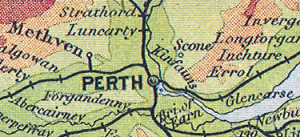 1390 Augustinian abbey Scone. Perth, Fife. John Earl of Carrick was crowned. Robert II’s de Bruce eldest son, assumed the name of Robert 3rd. Scone is northeast of Perth, east of the River Tay.
1390 Augustinian abbey Scone. Perth, Fife. John Earl of Carrick was crowned. Robert II’s de Bruce eldest son, assumed the name of Robert 3rd. Scone is northeast of Perth, east of the River Tay.
1390 – John FitzAlan, 2nd Baron Arundel, died. English soldier (b. 1364). John was with the army in Scotland in 1383. Arundel’s daughter (or sister) Margaret married to William de Ros, 7th Baron de Ros. Ros first assignment from Richard II of England was to join Walter Skirlaw, Bishop of Durham, Henry Percy, 1st Earl of Northumberland and others in negotiating for a peace treaty with Robert III of Scotland. Arundel was 2nd great uncle to Queen Joan Beufort, of Scots.
1465-1536 Hector Boece’s historical account of Macbeth of Scotland flattered the antecedents of Boece’s patron King James IV of Scotland, and greatly maligned the real Macbeth. 1527 Boece Published the Historia Gentis Scotorum (History of the Scottish People) to the accession of James III of Scotland (1438). In the early 1530s the scholar Giovanni Ferrerio, engaged by Robert Reid of Kinloss Abbey, wrote a continuation of Boece’s history, extending it another 50 years, to the end of the reign of James III. John Lesley in his De Origine, Moribus, et Rebus Gestis Scotorum brought to 1561, 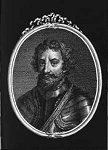 and Robert Lindsay of Pitscottie, provided further continuations. The chronicler Polydore Vergil made some use of Boece for his 1534 Historia Anglica. David Chalmers of Ormond in his Histoire abbregée (1572) wrote about the French, English and Scottish monarchies, relying on Boece for the Scottish account. The Historia was translated into English for Raphael Holinshed’s Chronicles of England, Scotland, and Ireland. Holinshed’s Chronicle was then used by William Shakespeare as the basis of his play Macbeth. MacBeth – King of Scotland 1040 – 57
and Robert Lindsay of Pitscottie, provided further continuations. The chronicler Polydore Vergil made some use of Boece for his 1534 Historia Anglica. David Chalmers of Ormond in his Histoire abbregée (1572) wrote about the French, English and Scottish monarchies, relying on Boece for the Scottish account. The Historia was translated into English for Raphael Holinshed’s Chronicles of England, Scotland, and Ireland. Holinshed’s Chronicle was then used by William Shakespeare as the basis of his play Macbeth. MacBeth – King of Scotland 1040 – 57
George Buchanan made heavy use of Boece in his Rerum Scoticarum Historia (1582) Latin. Sir Walter Scott used an English translation of Buchanan for Tales of a Grandfather (1827), reprinted as History of Scotland 1900. On August 22nd and 23rd 1877, Wilford Woodruff, later reported that three knights, among others, Sir Walter Scott ‘called upon me, as an Apostle of the Lord Jesus Christ, in the Temple at St. George, two consecutive nights, and demanded at my hands that I should go forth and attend to the ordinances of the House of God for them.’ A high honor indeed!
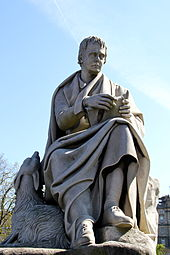 Sir Walter Scott, 1st Baronet (15 August 1771 – 21 September 1832) was a Scottish historical novelist, playwright, and poet. Born in College Wynd[2] in the Old Town of Edinburgh in 1771, the son of a solicitor, Scott survived a childhood bout of polio in 1773 that left him lame. in October 1779 he began at the Royal High School of Edinburgh. Walter was given private tuition by James Mitchell in arithmetic and writing, and learned from Mitchell the history of the Church of Scotland with emphasis on the Covenanters. Scott began studying classics at the University of Edinburgh in November 1783, at the age of only 12, Statue by Sir John Steell (born Aberdeen 1804) on the Scott Monument in Edinburgh.
Sir Walter Scott, 1st Baronet (15 August 1771 – 21 September 1832) was a Scottish historical novelist, playwright, and poet. Born in College Wynd[2] in the Old Town of Edinburgh in 1771, the son of a solicitor, Scott survived a childhood bout of polio in 1773 that left him lame. in October 1779 he began at the Royal High School of Edinburgh. Walter was given private tuition by James Mitchell in arithmetic and writing, and learned from Mitchell the history of the Church of Scotland with emphasis on the Covenanters. Scott began studying classics at the University of Edinburgh in November 1783, at the age of only 12, Statue by Sir John Steell (born Aberdeen 1804) on the Scott Monument in Edinburgh.
1513 – Battle of Guinegate (Battle of the Spurs) – King Henry VIII of England (brother in law to the King of Scots) and his Imperial allies defeat French Forces who are then forced to retreat. Leading up to Flodden Field in September.
1641 King Charles (Stewart) visits Scoland. The bench of bishops and bonds of articles were abolished. No man should be created a Scottish peer, who did not possess 10,000 merks of annual rent (L500 sterling in 1825 money); triennial parliaments adopted; the last act of each parliament should be to appoint the time and place for the next parliament; the king was deprived of the power to issue proclamation conjoining obedience under penalty of treason. Appointments to the privy council, office of state, and judge required advice and approbation of parliament. While in Scotland, Charles conformed to the Presbyterian church. Tytler’s Britannica 193-194.
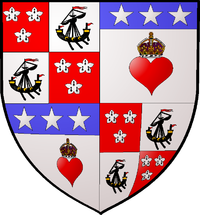 1724 Anne Cochrane (b c1706, d 14.08.1724) Ralston estate, in Renfrewshire, was given to Lady Anne as dowry, by her father the Earl of Dundonald, when Anne married James, the fifth Duke of Hamilton, 2nd Duke of Brandon (b 05.01.1702-3, d 09.03.1742-3). Duke of Hamilton is a title in the Peerage of Scotland, created in 1643.
1724 Anne Cochrane (b c1706, d 14.08.1724) Ralston estate, in Renfrewshire, was given to Lady Anne as dowry, by her father the Earl of Dundonald, when Anne married James, the fifth Duke of Hamilton, 2nd Duke of Brandon (b 05.01.1702-3, d 09.03.1742-3). Duke of Hamilton is a title in the Peerage of Scotland, created in 1643.
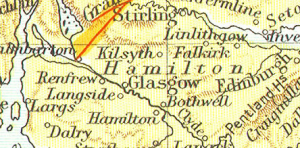 Ralston is on the edge of the town of Paisley in Renfrewshire, on the road between Renfrew and Glasgow, a few miles south of the River Clyde.
Ralston is on the edge of the town of Paisley in Renfrewshire, on the road between Renfrew and Glasgow, a few miles south of the River Clyde.
Anne Cochrane and James HAMILTON’s son sold Ralston in 1755 to William MacDowal of Castle Semple, an eminent Glasgow merchant and one of the founders of the Ship Bank there. His son, William of Garthland and Castle Semple, sold Ralston in 1800 to William Orr, son of a Paisley manufacturer who, with his brother, made his fortune in the manufacture of linens in Ireland. Wikipedia.
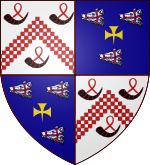 The Castle Semple and Barr Lochs lie in an area previously covered by one large loch known as ‘Loch Winnoch’, The ruins of the small Sixteenth Century Collegiate Church can be found on the Northern shore along a well-maintained path. It was built in 1504 by John, Lord Sempill, in the grounds of the original (Thirteenth century) Castle Semple, and is now in the care of Historic Scotland.. arms of Lord Sempill
The Castle Semple and Barr Lochs lie in an area previously covered by one large loch known as ‘Loch Winnoch’, The ruins of the small Sixteenth Century Collegiate Church can be found on the Northern shore along a well-maintained path. It was built in 1504 by John, Lord Sempill, in the grounds of the original (Thirteenth century) Castle Semple, and is now in the care of Historic Scotland.. arms of Lord Sempill
1745 Aug 14 Captain Switenham of Guise’s regiment, when on his way from 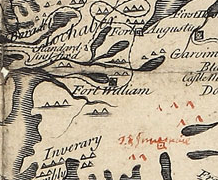 Ruthven to take command at Fort William, taken prisoner by Keppoch’s people, PRINCE CHARLES EDWARD STUART, within twelve miles of the fort (G.C.T. 19, I. 352).
Ruthven to take command at Fort William, taken prisoner by Keppoch’s people, PRINCE CHARLES EDWARD STUART, within twelve miles of the fort (G.C.T. 19, I. 352).
Fort William.
1779 Captain John Paul Jones took command of the 42-gun Bonhomme Richard (or as he preferred it, Bon Homme Richard), a merchant ship rebuilt and given to America by the French shipping magnate, Jacques-Donatien Le Ray. On August 14, as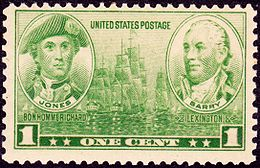 a vast French and Spanish invasion fleet approached England, he provided a diversion by heading for Ireland at the head of a five ship squadron including the 36-gun Alliance, 32-gun Pallas, 12-gun Vengeance, and Le Cerf, also accompanied by two privateers, Monsieur and Granville. Wikipedia John Paul Jones, Navy Issue of 1937. John Paul born (July 6, 1747) in Arbigland near Kirkbean in the Stewartry of Kirkcudbright on the southwest coast of Scotland.
a vast French and Spanish invasion fleet approached England, he provided a diversion by heading for Ireland at the head of a five ship squadron including the 36-gun Alliance, 32-gun Pallas, 12-gun Vengeance, and Le Cerf, also accompanied by two privateers, Monsieur and Granville. Wikipedia John Paul Jones, Navy Issue of 1937. John Paul born (July 6, 1747) in Arbigland near Kirkbean in the Stewartry of Kirkcudbright on the southwest coast of Scotland.
1781 Washington continued to probe the New York area, until August 14, when he received a letter from de Grasse that he was headed to Virginia with 29 warships and 3,200 men, but would only remain there until October 14. De Grasse encouraged Washington to come south where they could launch a joint operation. Upon receiving this news, Washington abandoned his plan to take New York, and began to prepare his army for the march south to Virginia’s Tidewater.
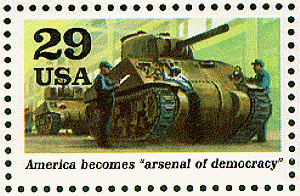 1941 The Atlantic Charter was conceived on August 14, 1941, on a war vessel off the coast of Newfoundland, to be endorsed the following month by the United States, Great Britain (with Scotland), the Soviet Union, and exiled governments of Belgium, Czechoslovakia, Greece, Luxembourg, the Netherlands, Norway, Poland, Yugoslavia, and General Charles de Gaulle, of the Free French Forces.
1941 The Atlantic Charter was conceived on August 14, 1941, on a war vessel off the coast of Newfoundland, to be endorsed the following month by the United States, Great Britain (with Scotland), the Soviet Union, and exiled governments of Belgium, Czechoslovakia, Greece, Luxembourg, the Netherlands, Norway, Poland, Yugoslavia, and General Charles de Gaulle, of the Free French Forces.
1991 September 3 issue. World War II. Commemorative issue.
1968 Catherine Lisa Bell born, daughter of Peter Bell, Scot. An American actress known for her role of Marine Lieutenant Colonel Sarah MacKenzie of the television show JAG from 1997 to 2005. Cassandra “Cassie” Nightingale, the main character of Hallmark’s The Good Witch (2008), and its sequels The Good Witch’s Garden (2009), The Good Witch’s Gift (2010),The Good Witch’s Family (2011), and The Good Witch’s Charm (2012);
1987 – Tim Tebow, born. (clan Ramsey, clan Lockhart) American football player and winner of 2007 Heisman trophy. 2nd ggf James Newton Ramsey: b. 8 Jun 1865/6 Blackman’s Grove, Richland Co., (or De Kalb, Crawford Co.) OH; d. 15 Jan 1938 Cincinnati, Hamilton Co., OH; m. 5 Mar 1891. James’ Scots descent, his paternal great-great-grandparents being Alexander and Elizabeth (nee Lockard) Ramsey who emigrated from the North of Ireland to North Carolina in the middle of the eighteenth century and then lt York county, Pennsylvania,
 1996 Small Faces filmed in Glasgow, including Darnley, Sighthill, Partick, Merrylee and Bishopbriggs.
1996 Small Faces filmed in Glasgow, including Darnley, Sighthill, Partick, Merrylee and Bishopbriggs.
Poster.
2014
 Culross Festival features folk and rock music, outdoor opera. 14th to 17th
Culross Festival features folk and rock music, outdoor opera. 14th to 17th
Disclaimer: The author of each article published on this web site owns his or her own words. The opinions, beliefs and viewpoints expressed by the various authors and forum participants on this site do not necessarily reflect the opinions, beliefs and viewpoints of Utah Standard News or official policies of the USN and may actually reflect positions that USN actively opposes. No claim in public domain or fair use. © John Choate
Utah Standard News depends on the support of readers like you.
Good Journalism requires time, expertise, passion and money. We know you appreciate the coverage here. Please help us to continue as an alternative news website by becoming a subscriber or making a donation. To learn more about our subscription options or make a donation, click here.
To Advertise on UtahStandardNews.com, please contact us at: ed@utahstandardnews.com.


Comments - No Responses to “August 14th Scots Book of Days”
Sure is empty down here...